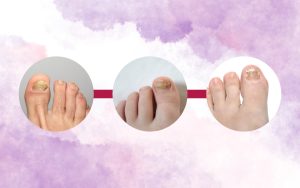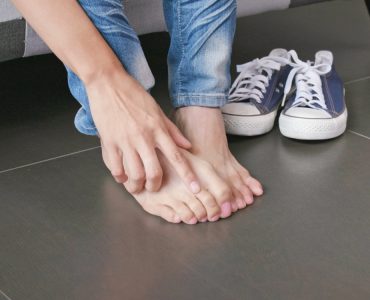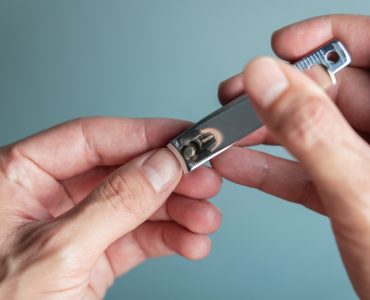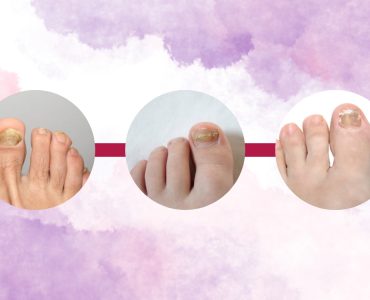Have you ever experienced the discomfort and pain caused by an ingrown nail? If so, you’re not alone. Ingrown nails are a common foot problem that can be both bothersome and painful. While there can be various causes for ingrown nails, one significant factor that often goes overlooked is improper footwear.
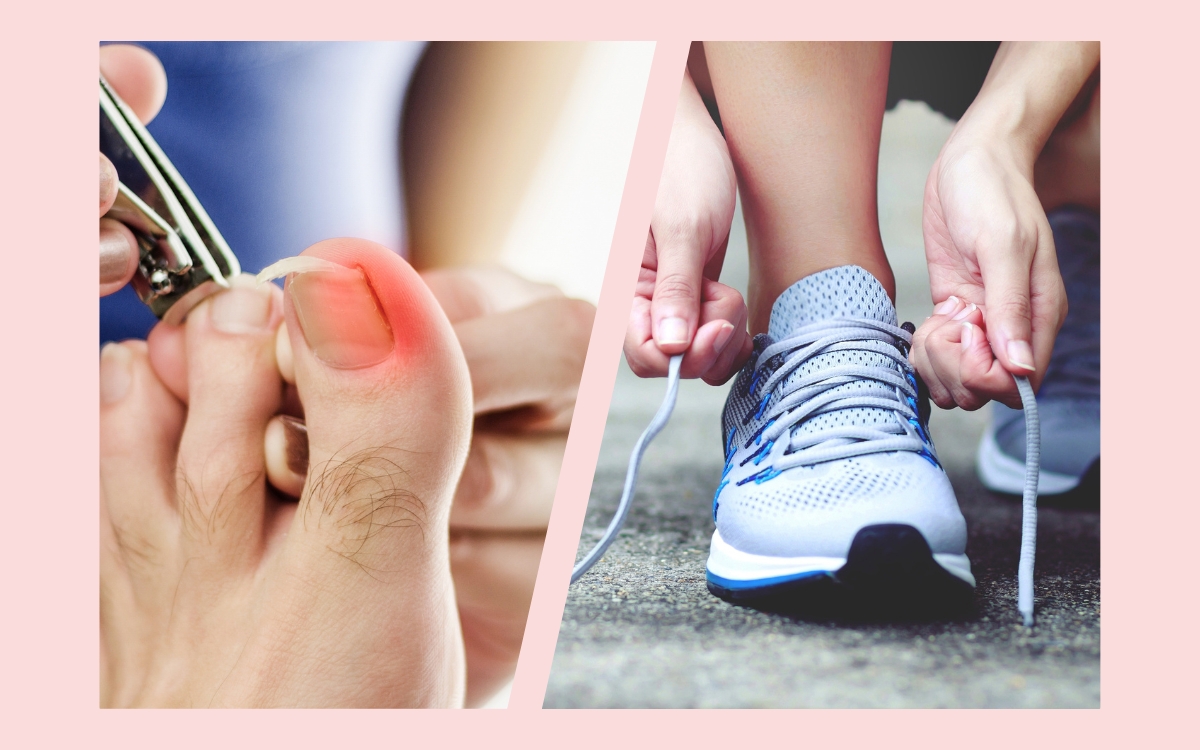
In this article, we will delve into the connection between wearing ill-fitting shoes and the development of ingrown nails. We’ll explore how certain footwear choices can contribute to this condition and provide you with tips on how to prevent ingrown nails by choosing the right shoes. So, if you want to avoid the agony of ingrown nails, read on to discover the importance of proper footwear for foot health.
The Role of Footwear in Ingrown Nails
Tight Shoes and Increased Pressure
One of the significant factors contributing to ingrown nails is wearing tight shoes. When your shoes are too tight, they can exert excessive pressure on your toes, including the nails. This pressure can cause the nails to grow into the surrounding skin, leading to the development of ingrown nails.
Particularly, shoes with narrow toe boxes are problematic as they squeeze the toes together, increasing the chances of the nails digging into the skin.
Narrow Toe Boxes and Restricted Toe Movement
Footwear with narrow toe boxes significantly restricts the natural movement of your toes. When your toes are cramped together, it can cause the nails to become curved or curled. Over time, this can result in the nails growing into the skin instead of growing straight out. Moreover, the lack of sufficient space within the shoe can worsen the condition, leading to pain, inflammation, and potential infection.
High Heels and Added Pressure on Toes
High heels may be fashionable, but they can wreak havoc on your foot health, including increasing the risk of ingrown nails. When you wear high heels, your weight is shifted forward, forcing your toes to bear the brunt of the pressure.
This constant pressure can cause the nails to become distorted and press against the skin, increasing the likelihood of ingrown nails. Additionally, high heels often have narrow toe boxes, exacerbating the problem.
Improper Footwear and Nail Shape Changes
Wearing improper footwear can contribute to changes in the shape of your nails, making them more susceptible to becoming ingrown. Shoes that are too tight or have narrow toe boxes can cause the nails to become misshapen or curved.
These irregular nail shapes make it easier for the nails to grow into the surrounding skin, leading to the development of ingrown nails. It’s essential to pay attention to the shape of your nails and how they interact with your footwear.
Impact on Blood Circulation
Ill-fitting shoes and improper footwear choices can also impact blood circulation in your feet. When shoes are too tight, they can constrict blood vessels, leading to poor circulation. Reduced blood flow can affect the overall health of your nails and skin, making them more vulnerable to ingrown nails.
Proper footwear with adequate space and support ensures optimal blood circulation, promoting healthy nail growth and minimizing the risk of ingrown nails.
Importance of Proper Footwear Selection
Understanding the role of footwear in the development of ingrown nails highlights the importance of choosing the right shoes. Opting for shoes with a proper fit, wide toe boxes, and adequate arch support can significantly reduce the risk of ingrown nails.
By providing sufficient space for your toes to move and grow naturally, you can help prevent the nails from becoming ingrown. Prioritizing comfortable and supportive footwear is crucial for maintaining overall foot health and minimizing the occurrence of ingrown nails.
Choosing the Right Shoes
Proper Fit for Foot Comfort
When it comes to preventing ingrown nails, choosing shoes with the right fit is paramount. Shoes that are too tight can put excessive pressure on your toes, leading to nail deformities and the risk of ingrown nails.
Conversely, shoes that are too loose can cause your feet to slide forward, increasing friction and potentially pushing the nails into the skin. Aim for a snug but comfortable fit that allows your toes to move freely without restrictions.
Wide Toe Boxes for Toe Freedom
One key feature to look for in footwear to prevent ingrown nails is a wide toe box. Shoes with wide toe boxes provide ample room for your toes to spread naturally, reducing the likelihood of nail impingement.
The extra space allows your nails to grow straight out without curving or digging into the surrounding skin. Consider shoes designed with a wider forefoot to accommodate the natural shape of your feet.
Adequate Arch Support for Stability
In addition to toe space, proper arch support plays a crucial role in foot health and preventing ingrown nails. Shoes with adequate arch support help distribute the weight evenly across your feet, reducing pressure points and minimizing the risk of nail-related problems.
Opt for footwear that provides sufficient support for your arches, promoting proper alignment and relieving stress on your nails and surrounding tissues.
Materials that Promote Breathability
Choosing shoes made from breathable materials can also contribute to healthy nail growth and reduce the chances of ingrown nails. Breathable fabrics, such as mesh or natural fibers, allow for better air circulation around your feet, preventing excessive moisture buildup.
Damp environments create a breeding ground for bacteria and fungi, which can lead to nail infections and increase the risk of ingrown nails. Look for shoes that prioritize breathability to maintain a dry and comfortable environment for your feet.
Toe Protection in Specific Activities
Certain activities, such as sports or hiking, may require additional toe protection to prevent injury and minimize the risk of ingrown nails. If you engage in high-impact or potentially hazardous activities, consider footwear that offers reinforced toe caps or protective features.
Read This Next:
These features provide an extra layer of safeguarding for your nails, reducing the likelihood of trauma or nail damage that could lead to ingrown nails.
Professional Fitting and Expert Advice
When in doubt, seeking professional fitting and expert advice can be immensely helpful in choosing the right shoes. Visit a reputable shoe store or consult with a podiatrist who can assess your foot structure, recommend appropriate footwear options, and address any specific concerns you may have.
Professional guidance ensures that you make informed choices that prioritize your foot health and minimize the risk of ingrown nails.
Ongoing Evaluation and Adjustments
Remember that foot size and shape can change over time, so it’s crucial to periodically re-evaluate your footwear choices. Keep an eye on any discomfort, pain, or changes in your nails that may indicate ill-fitting shoes or potential nail problems.
Regularly assess the condition and fit of your footwear to ensure they continue to provide the necessary support and space for your feet. Making adjustments as needed will help you maintain optimal foot health and reduce the risk of ingrown nails.
Conclusion
Your feet are the foundation of your body, and the shoes you wear play a crucial role in maintaining their health. As we’ve discussed in this article, improper footwear can lead to the development of ingrown nails, causing pain and discomfort. Ill-fitting shoes, tight toe boxes, and high heels are common culprits that put excess pressure on the nails, leading them to grow into the surrounding skin.
However, by making thoughtful choices when it comes to footwear, you can significantly reduce the risk of ingrown nails. Opt for shoes that provide adequate space for your toes to move freely, have a wide toe box, and offer proper arch support.
Additionally, maintaining good foot hygiene, trimming your nails correctly, and seeking professional help when needed are essential steps in preventing and treating ingrown nails. Remember, the right shoes not only keep your feet comfortable but also help you maintain overall foot health. Prioritize your foot’s well-being, and you’ll be on your way to happy and healthy feet for years to come.



